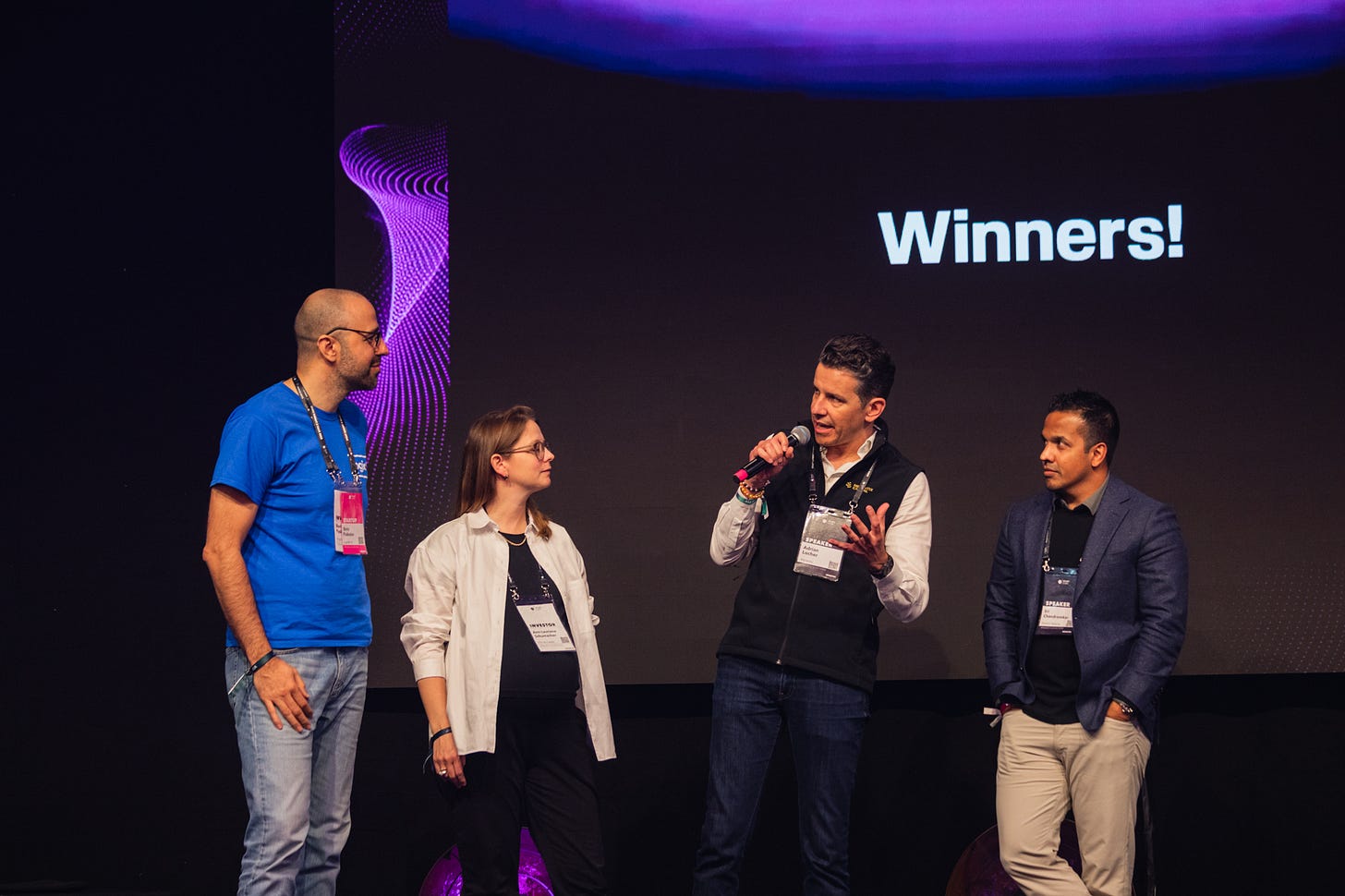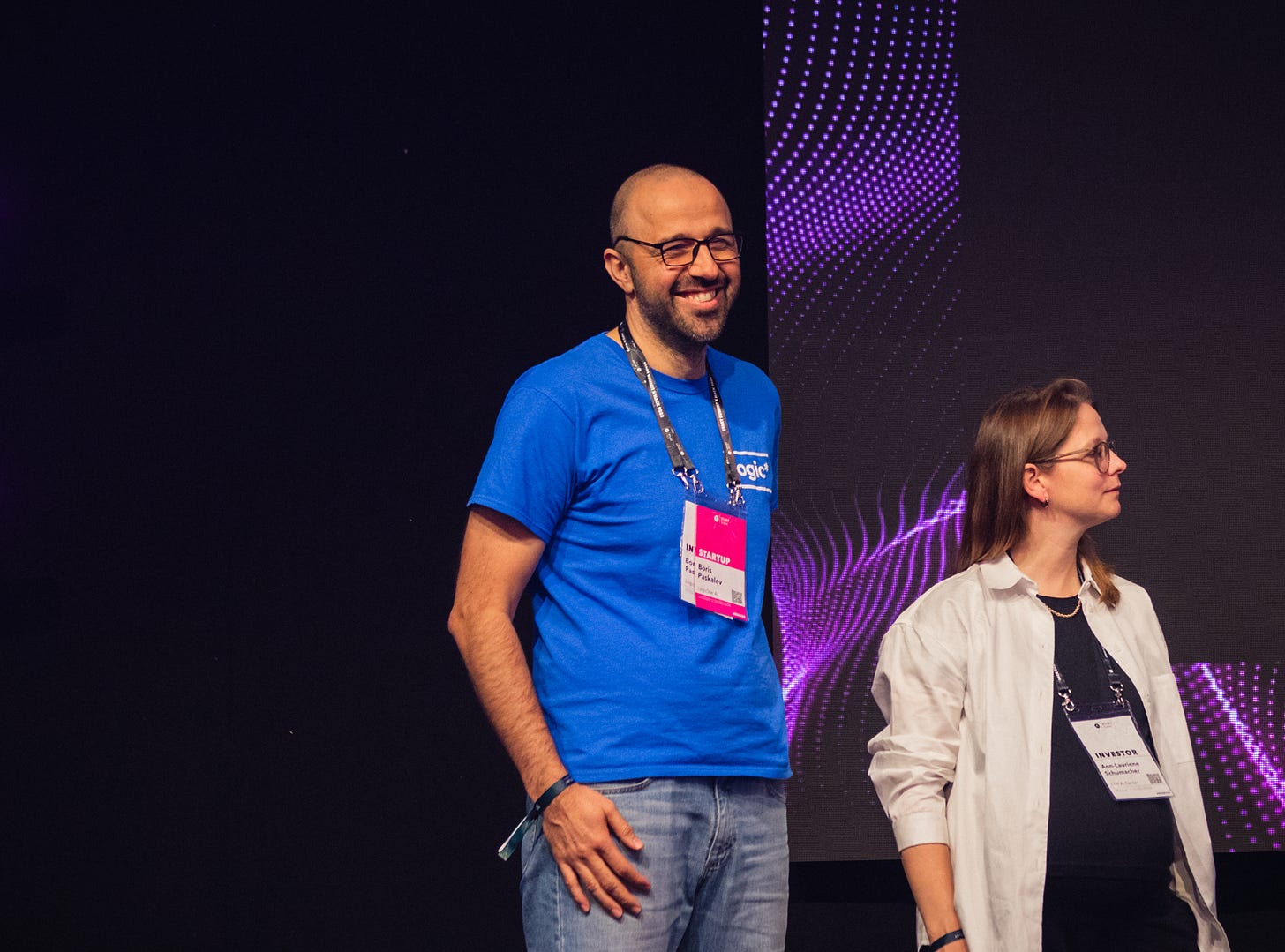Building the future of Agentic AI for engineers with LogicStar AI
CEO Boris Paskalev, the winner of our AI pitch competition at START, on creating “Silicon developers” that can debug code on their own
Last month, Merantix Capital had the pleasure of hosting a great AI pitch competition at the annual START Summit in St. Gallen, Switzerland.
We heard from six great early-stage AI ventures, but one really stood out to our panel of judges: LogicStar AI, which is building autonomous AI agents that solve one of the biggest bottlenecks in software development (the manual and slow task of maintaining and debugging production code). The company recently announced its €2.9 million in pre-seed funding round, led by Northzone.
I had the opportunity to sit down with LogicStar AI CEO and co-founder Boris Paskalev after his successful pitch to talk about how he’s creating “Silicon developers” and the future of agentic AI. A seasoned founder, Paskalev’s last venture DeepCode was acquired by Snyk.
Adrian: Congrats on winning our pitch competition. Agentic AI is obviously a hot area right now. Tell us a bit about your core vision and how you define an agent.
Boris: Our internal definition of an agent is an entity, ultimately a “Silicon developer,” that fully autonomously produces tasks and calls large language models. We distinguish between agents and tools. Agents can call other agents or tools and work together to produce what we want. Ultimately, it’s about freeing engineers from the laborious tasks of maintaining code—investigating, reproducing, and fixing issues with high-fidelity, production-ready code.
So it’s about allowing engineers to focus on creativity?
Exactly. A lot of agentic AI tools talk about freeing up engineers for more meaningful work, and I agree. It’s already quite autonomous. The question is: what percentage of the backlog can be fixed autonomously?
That kind of automation frees up a significant number of engineers in larger organizations to focus on building new things. As our “junior Silicon developer” gains experience, it’ll take on more things like fixing documentation, refactoring code, and validating human work. But the biggest value today is automating a part of the backlog without engineers lifting a finger and doing it much faster.
How much faster?
From what we’ve heard consistently, it takes engineers between one hour and a day to fix a bug, on average maybe four hours. We can fix it in seconds. That’s the real value. It’s about building self-healing applications and fixing issues before customers even notice.
Do you see this ever replacing developers?
No, we’re not claiming we’ll replace developers. Complicated stuff will still need a human. But our goal is to take away a large portion of the work they don’t want to do. One of our key differentiators is that we’re not just building a co-development tool.
Today, most tools that are called “agents” expect constant human input. You prompt, you review, you discard or tweak 80–90% of the output. That’s just not scalable. The return on investment isn’t there. You spend more time reviewing than just fixing it yourself.
Are there particular industries where LogicStar AI works best?
Honestly, it’s across the board. We’ve seen it work from big banks to small startups, even open-source libraries. The main limitation right now is language. We only support Python. JavaScript and TypeScript are next.
The real challenge with adding a new language isn’t technical. It’s building the benchmarks to test the agents properly and ensure they improve over time. So when talking to folks on our waitlist or potential design partners, the main question is: “Do you have a Python app?
You’ve founded before. What's your approach to company building, based on your past experience?
Talk to customers as early as possible. Right now, we’re onboarding design partners and building out the initial integration. We want them to shape the product. The focus is building a strong product, early go-to-market and visuals that show the value clearly before we scale up sales and support teams.
What’s the benefit of building in Europe?
Honestly, it’s the deep tech community. ETH Zurich and INSAIT have incredible researchers. My co-founders are top experts in program analysis and LLMs. We’re not lacking in talent at all.
We’re also building out frontend teams in Bulgaria, where we have strong ties and can recruit great engineers. But customer support and sales will likely be U.S.-based, since that’s where a lot of our early adopters are.
What’s your LLM strategy?
We’re model agnostic. We use Claude, GPT-4 Mini, Gemini 2.5. Whichever works best for a given task. Different agents perform better with different models.
We’ve already got 12 agents working across different steps, and each uses a different model depending on what’s needed. That flexibility is key. As models improve, our product improves. We also care a lot about cost-efficiency. We want to build a sustainable business, not one that loses money hoping to scale later.
How did winning the pitch competition at START help you?
It gave us visibility. But really, it reinforced our mission: to build the first silicon maintenance engineer out there that frees up engineers.
Thanks very much, Boris! Good luck to you and your team, and congratulations again!





